(NLDO)- Ngu tro Vien Khe - a familiar name for Dong Anh folk songs - along with Song Ma folk songs and Xuan Pha tro are typical folk art forms of Thanh Hoa.
Dong Anh folk songs and folk dances (also known as Vien Khe five-piece performance) is a system of performances accompanying folk songs, mainly circulated in Vien Khe village (Dong Anh commune, Dong Son district; now Thanh Hoa city, Thanh Hoa province).
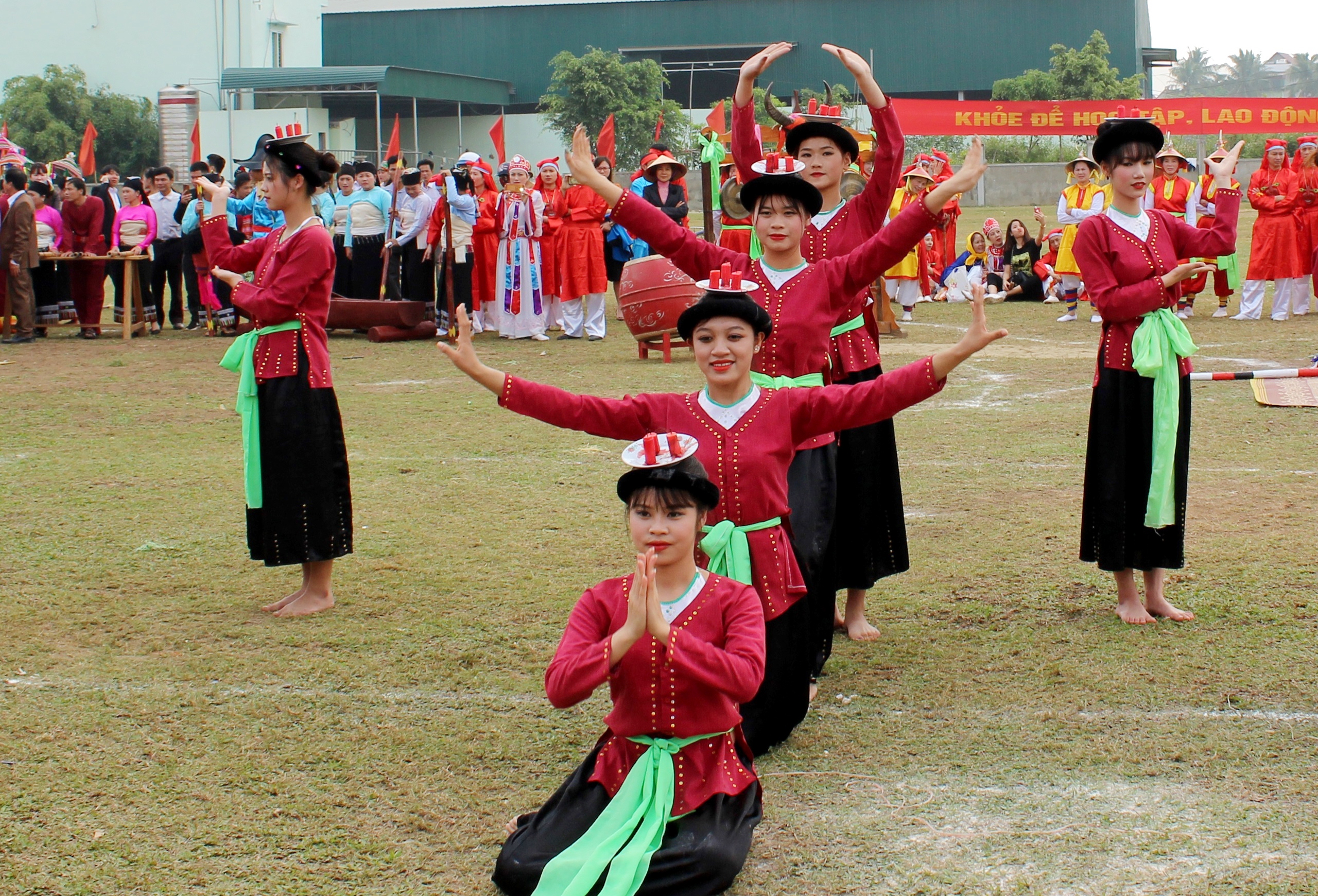
The five Vien Khe troupes, also known by the familiar name of Dong Anh folk songs and dances, along with Song Ma folk songs and Xuan Pha troupes, are considered the "powerful trio" of folk performing arts of Thanh Hoa.
Dong Anh plays are classified as typical folk performances of Thanh land along with the Ho Song Ma suite and Xuan Pha plays. Dong Anh plays reflect the daily life and feelings of ancient Vietnamese farmers.
Legend has it that the eldest son of Emperor (Thai Thu) Le Ngoc, named Lang Dai Vuong, was the founder of games and performances. Legend has it that Lang Dai Vuong went to villages and hamlets to join in the fun with the people, from which dances were taught and popularized to everyone (from the 5th to 7th centuries).
The dances and songs that have been passed down to this day date back to the 11th century (during the Ly Dynasty), but have not been staged into performances. People only sing them during hard work in the fields or on spring days when going to festivals.
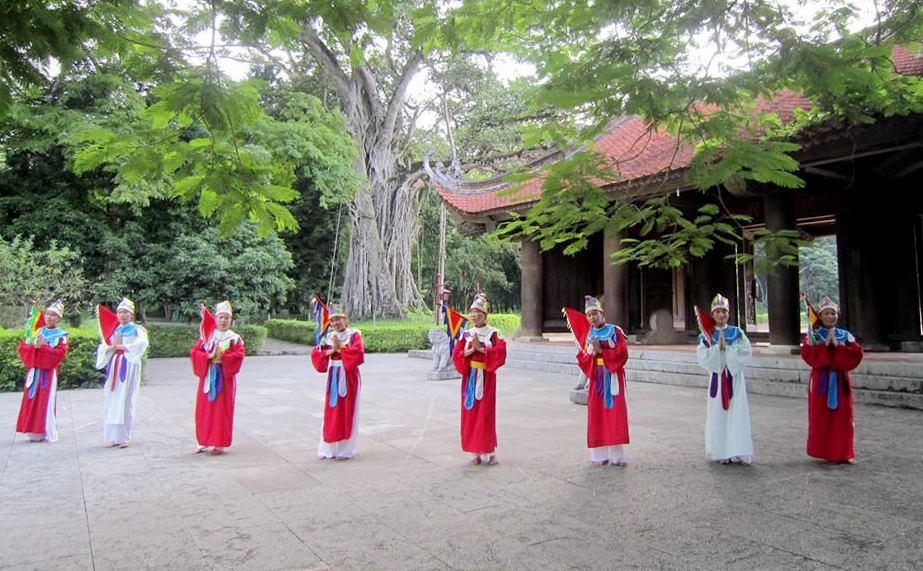
Artists perform the Tien Cuoi play in Dong Anh folk song performance
In the late 14th and early 15th centuries, in Thach Khe commune, there was a man named Nguyen Mong Tuan who passed the doctoral exam at the end of the Tran Dynasty. During a visit to his hometown, he saw some very beautiful dances and songs, so he and his fellow villagers composed 12 dances and songs.
Since then, in the years of Ty, Ngo, Mao, Dau in the crop cycle, the villages of Tuan Hoa, Thach Khe, Quang Chieu (now Dong Anh, Dong Thinh, Dong Khe communes, Thanh Hoa city) all organized performances and scored to compete at the Sam village festival in Vien Khe on a very large scale, attracting a large number of people in the region to participate, periodically every 3 years in the years of Thin, Tuat, Suu, Mui.
The content of the performances is lyrics accompanied by dances to form a unique and very special folk song of the residents of the Ma River Delta.
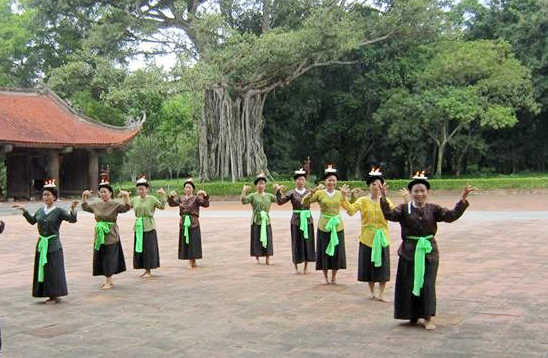
Lantern Dance performance at Lam Kinh historical site
It is called the five plays because at first, the performances in Vien Khe village had 5 plays, but later, due to cultural assimilation, the folk song and dance performances in Dong Anh had up to 12 plays: Lamp dance, Tien Cuoi (or Tien Phuong), To Vu, Drum and Gong, Thiep, Van Vuong (or Hum play), Thuy (or Thuy Phuong), Leo day, Xiem Thanh (or Chiem Thanh/Sim Thanh), Ha Lan (or Hoa Lang), Tu Huan (or Luc Hon Nhung), Ngo Quoc. In addition, in Dong Anh, there are some other plays such as Dai Thanh play, Nu Quan play...
Among the performances, the Lamp Dance relatively fully converges the quintessence of Dong Anh folk songs and dances. Because Dong Anh is a place where wet rice is grown, to create a comfortable spirit, enthusiasm for production and to pass on experiences, people have created lyrics and songs associated with each agricultural production activity, from the time of sowing rice to the harvest and then the idle time.
The lamp in the performance is an object closely associated with ancient agricultural residents. It is used by people in dances as a symbol of the change of time in the year, a symbol of light that brings growth and development to all things and contains the desire for a prosperous and happy life of people.
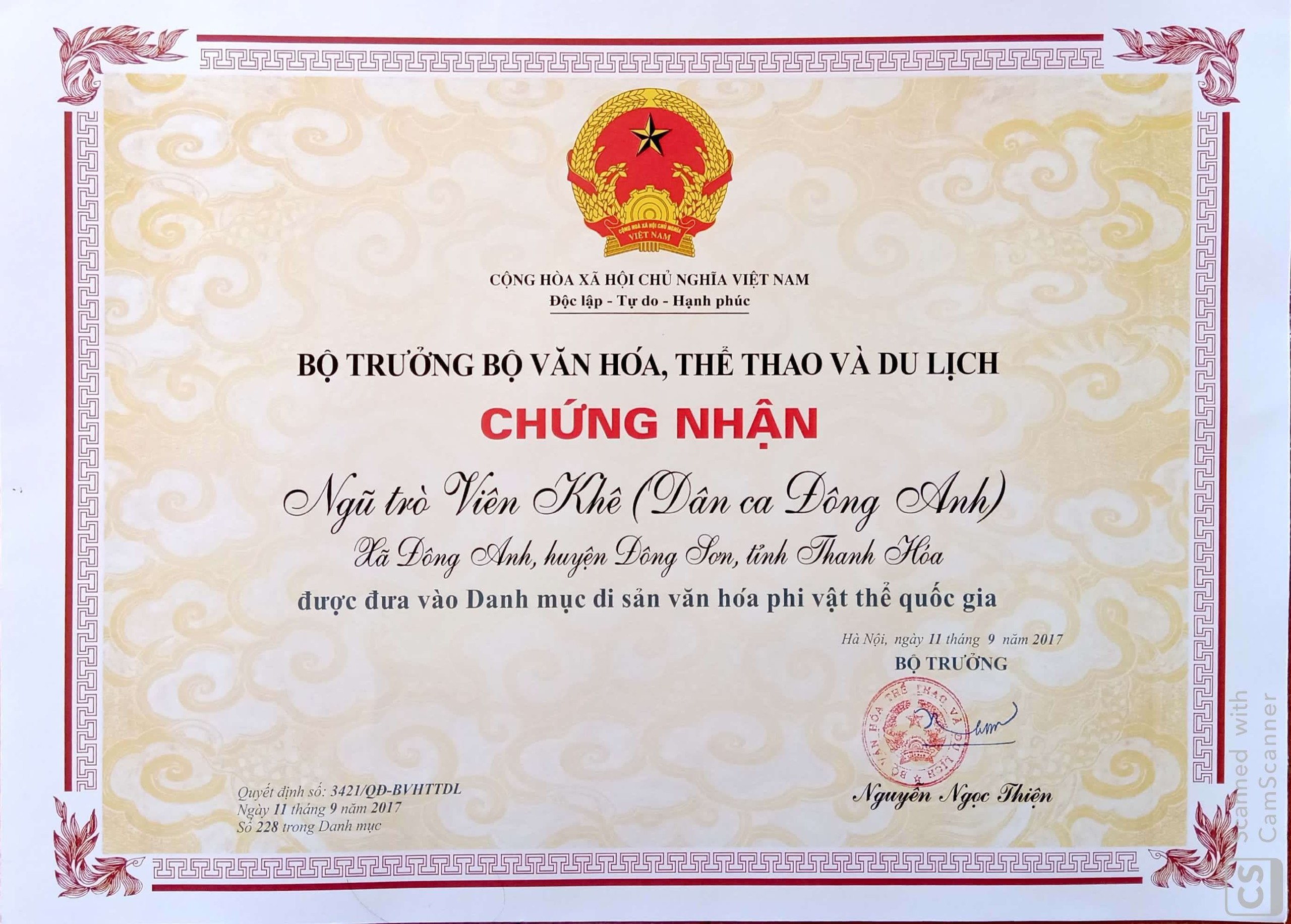
Ngu tro Vien Khe (Dong Anh folk song) is recognized as a national intangible cultural heritage.
The girls in their eighteens and twenties, unmarried, carry lanterns on their heads and dance gracefully, but the lanterns must not fall or fall. Therefore, the technical requirements are very difficult. Perhaps because of its beauty, simplicity and meaning, the Lantern Dance is performed a lot and is widely passed down through generations.
Although it is a unique performance, closely associated with the lives of residents, over time, the performance has been lost, especially during the war years.
By 2000, the Vietnam National Institute of Music and the Department of Culture, Sports and Tourism of Thanh Hoa province had collected, researched and restored 11 plays. In 2017, Ngu Tro Vien Khe was recognized as a national intangible cultural heritage.
It is known that, in order to preserve and promote the value of this unique heritage, Dong Son district (now Thanh Hoa city) has established clubs, invited artisans to teach club members not only in Dong Anh commune but also in other localities, organized extracurricular activities for local students to get acquainted, participate in performances... thereby helping to preserve and promote the value of the heritage.
Source: https://nld.com.vn/doc-dao-ngu-tro-vien-khe-196250201184001692.htm










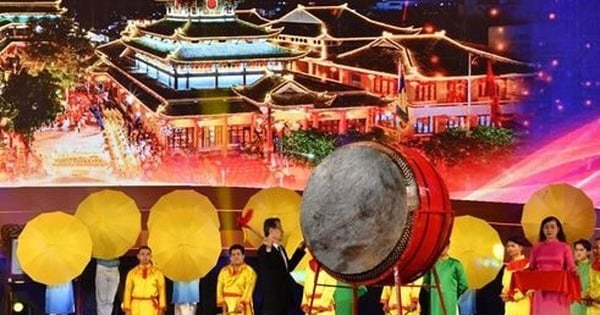

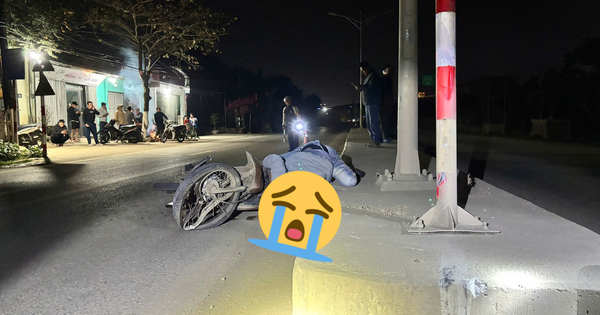
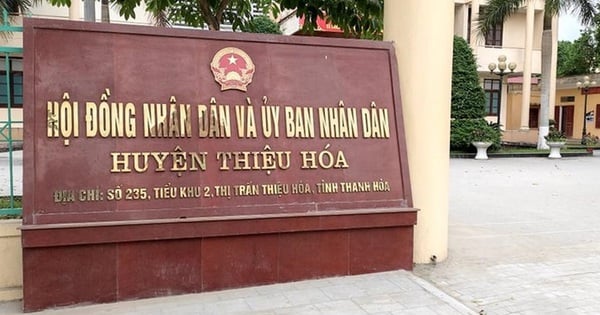
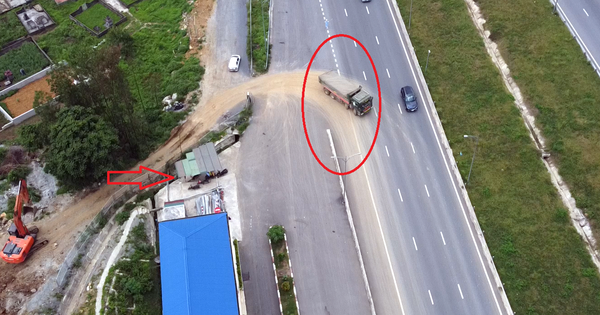
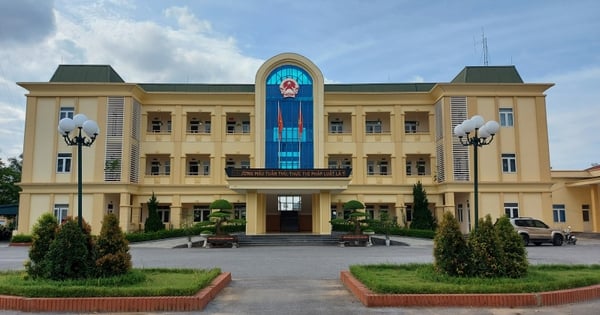





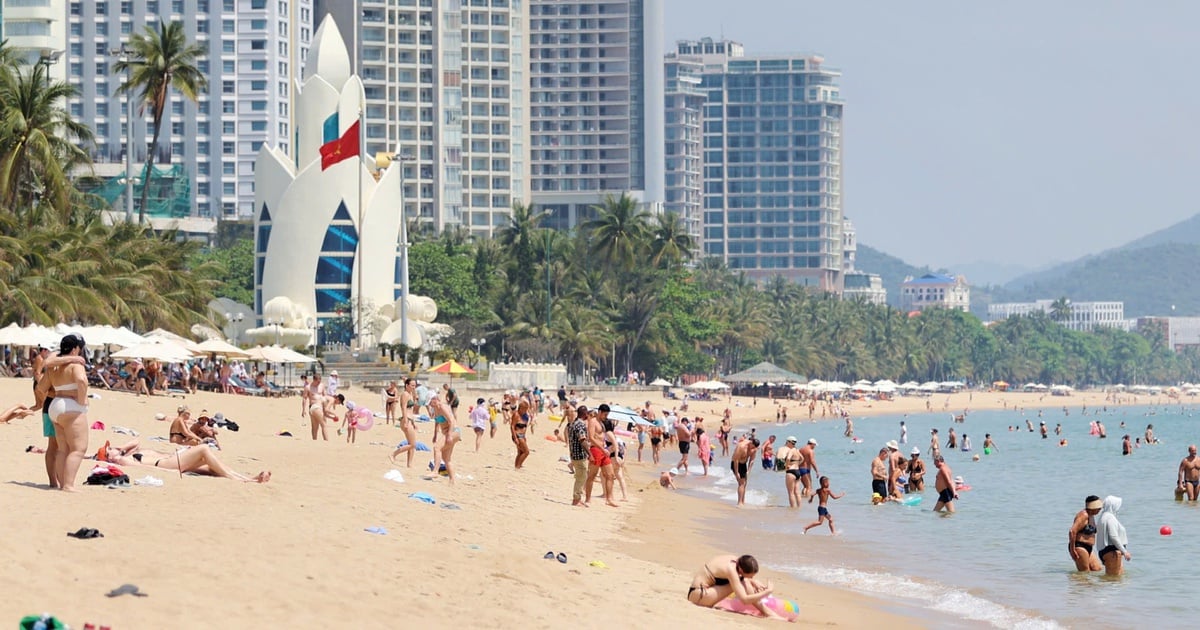


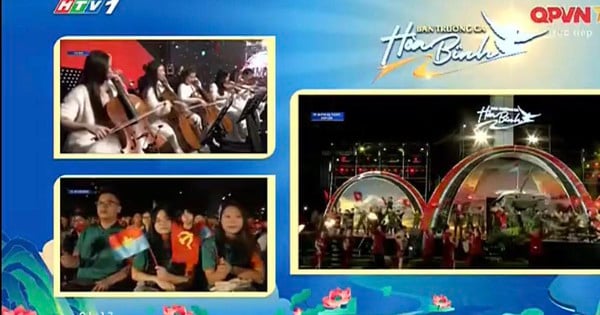
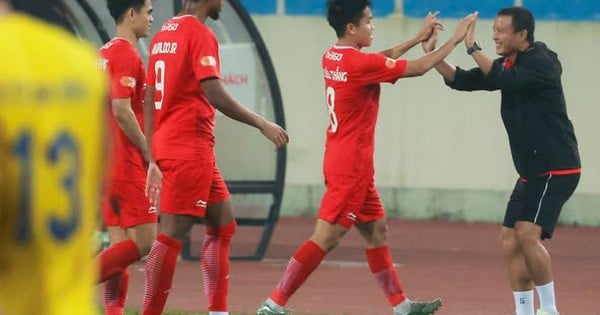

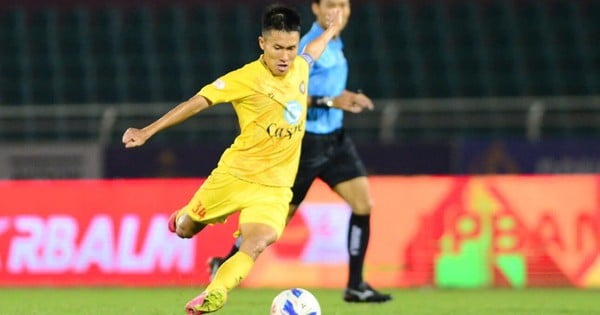



![[Photo] Visiting Cu Chi Tunnels - a heroic underground feat](https://vstatic.vietnam.vn/vietnam/resource/IMAGE/2025/4/8/06cb489403514b878768dd7262daba0b)








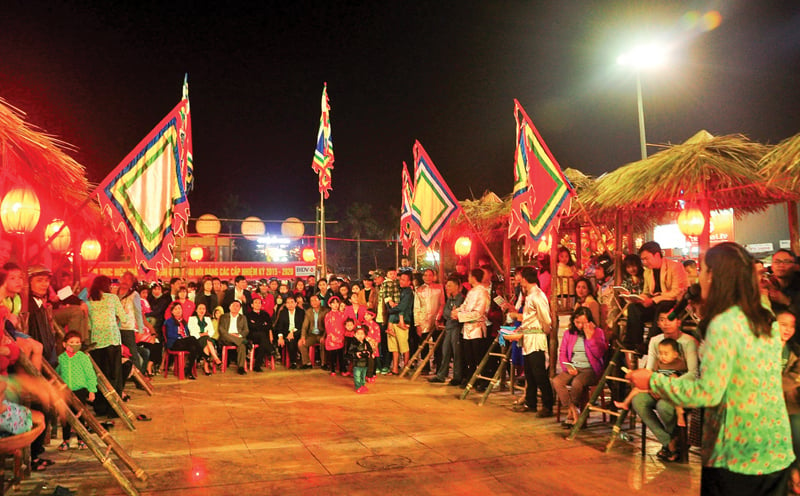

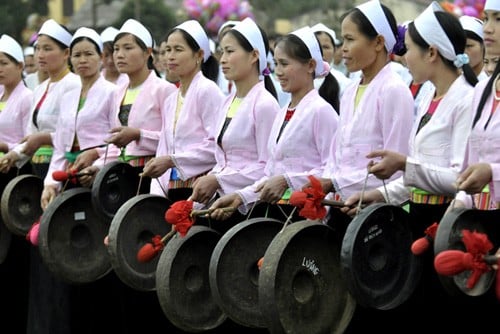












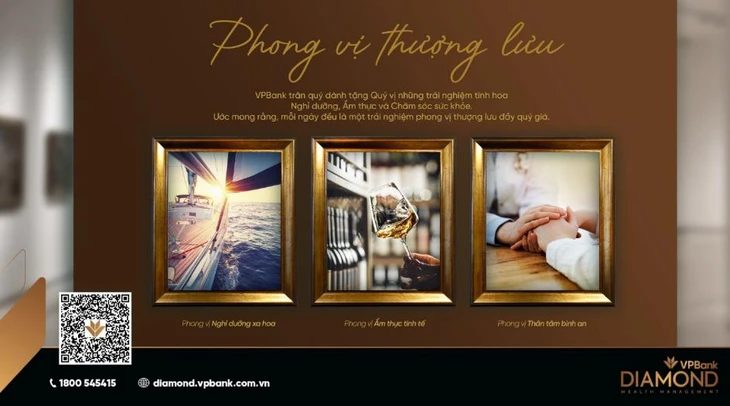










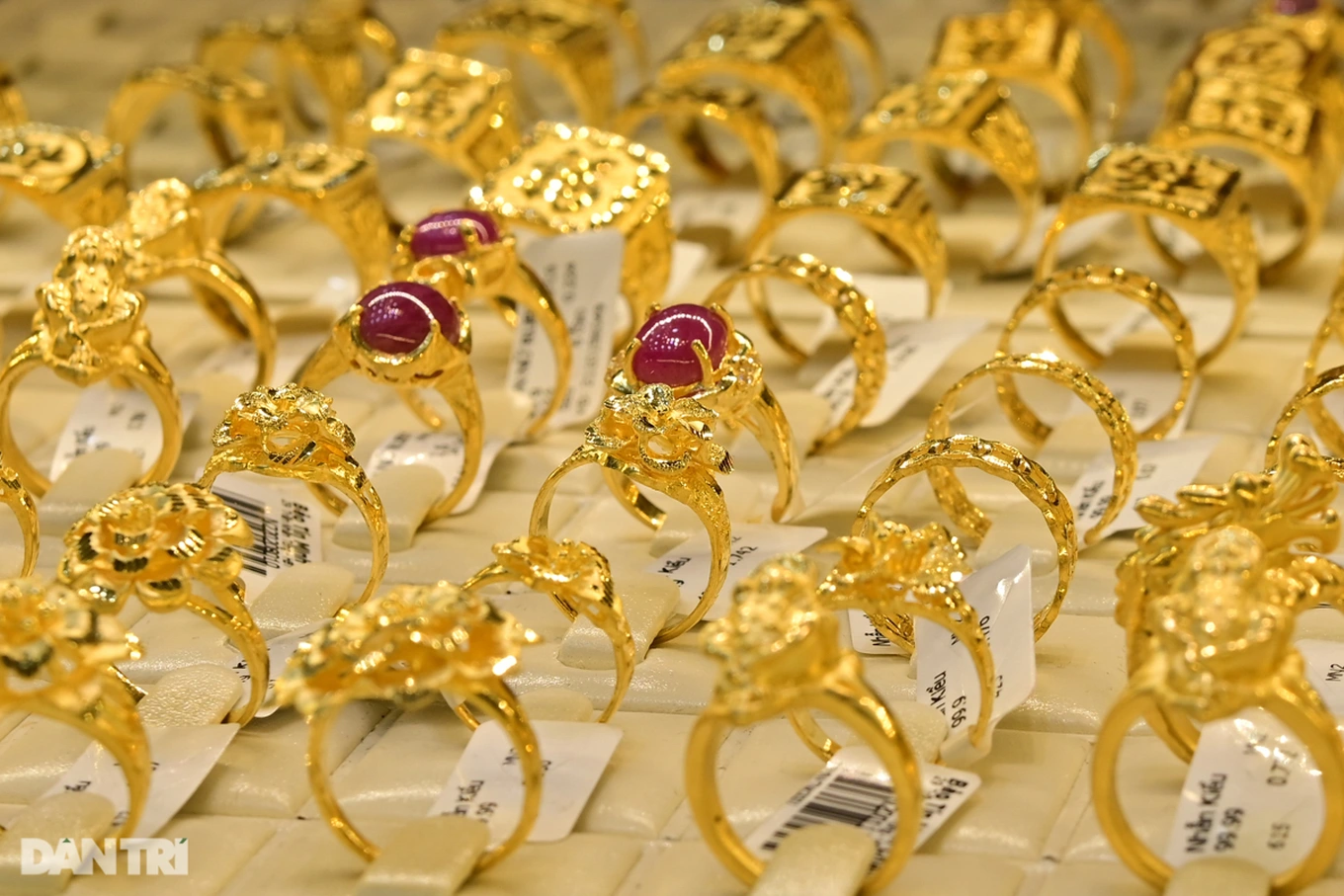
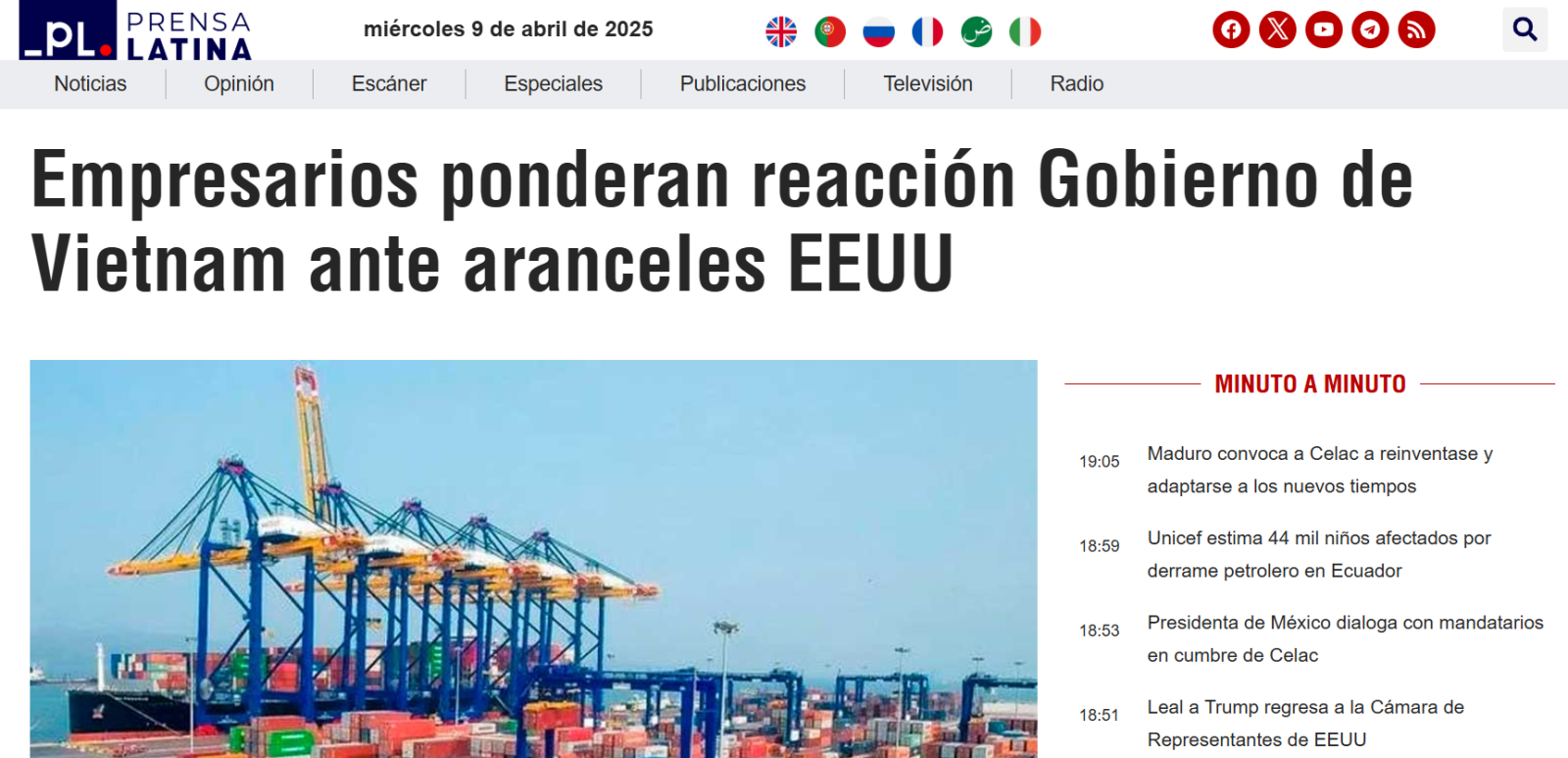
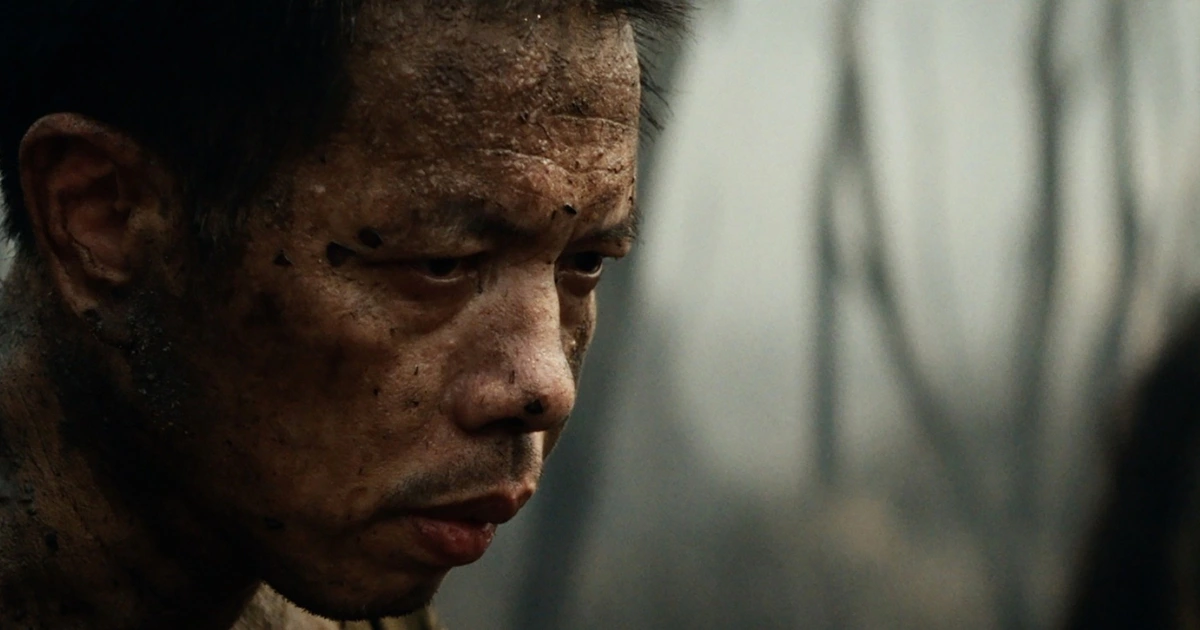
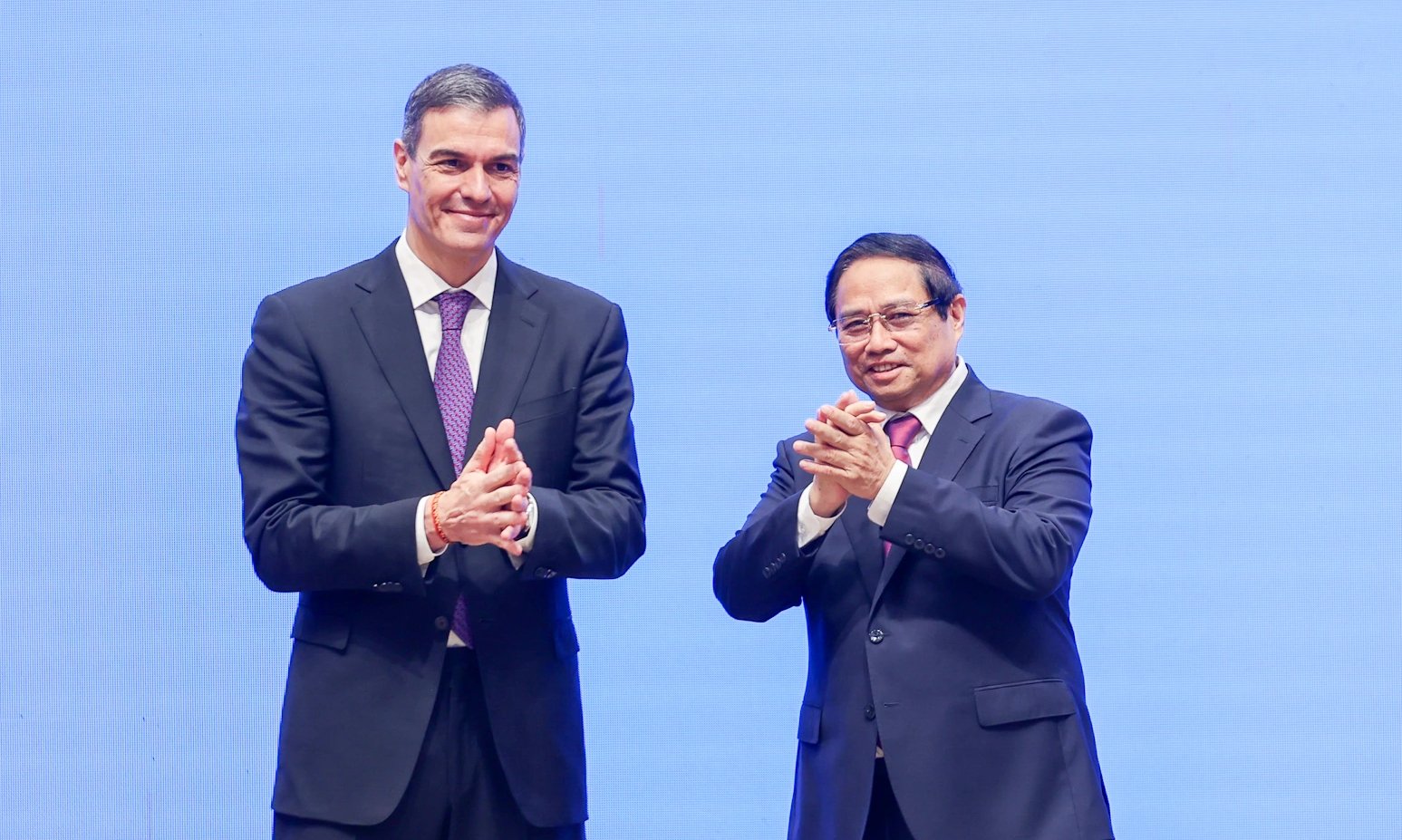





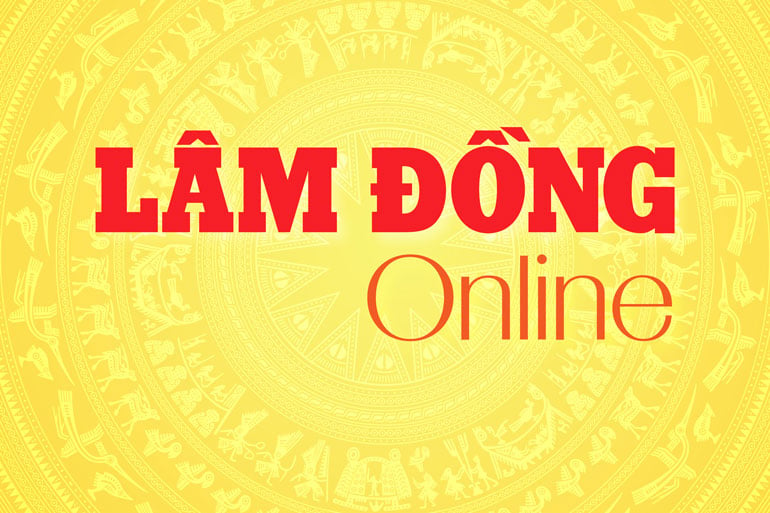
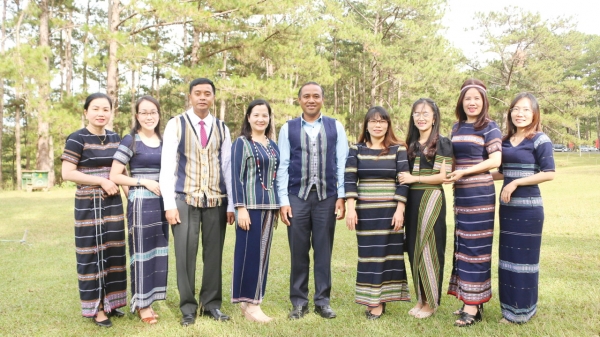
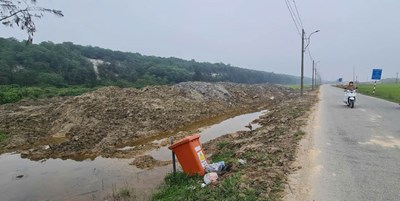

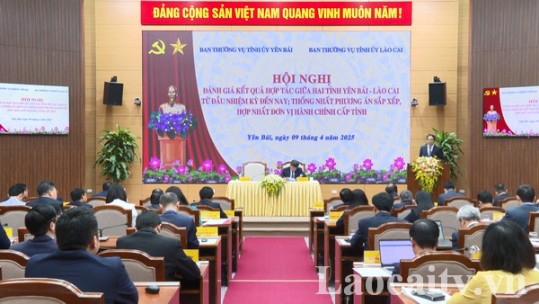










Comment (0)